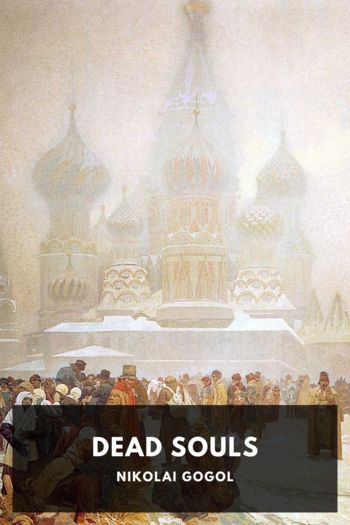Short Fiction - Nikolai Gogol (best selling autobiographies TXT) 📗

- Author: Nikolai Gogol
Book online «Short Fiction - Nikolai Gogol (best selling autobiographies TXT) 📗». Author Nikolai Gogol
I do not remember what happened next. Pidorka made a vow to go upon a pilgrimage, collected the property left her by her father, and in a few days it was as if she had never been in the village. Whither she had gone, no one could tell. Officious old women would have despatched her to the same place whither Peter had gone; but a Cossack from Kiev reported that he had seen, in a cloister, a nun withered to a mere skeleton who prayed unceasingly. Her fellow-villagers recognised her as Pidorka by the tokens—that no one heard her utter a word; and that she had come on foot, and had brought a frame for the picture of God’s mother, set with such brilliant stones that all were dazzled at the sight.
But this was not the end, if you please. On the same day that the Evil One made away with Peter, Basavriuk appeared again; but all fled from him. They knew what sort of a being he was—none else than Satan, who had assumed human form in order to unearth treasures; and, since treasures do not yield to unclean hands, he seduced the young. That same year, all deserted their earthen huts and collected in a village; but even there there was no peace on account of that accursed Basavriuk.
My late grandfather’s aunt said that he was particularly angry with her because she had abandoned her former tavern, and tried with all his might to revenge himself upon her. Once the village elders were assembled in the tavern, and, as the saying goes, were arranging the precedence at the table, in the middle of which was placed a small roasted lamb, shame to say. They chattered about this, that, and the other—among the rest about various marvels and strange things. Well, they saw something; it would have been nothing if only one had seen it, but all saw it, and it was this: the sheep raised his head, his goggling eyes became alive and sparkled; and the black, bristling moustache, which appeared for one instant, made a significant gesture at those present. All at once recognised Basavriuk’s countenance in the sheep’s head; my grandfather’s aunt thought it was on the point of asking for vodka. The worthy elders seized their hats and hastened home.
Another time, the church elder himself, who was fond of an occasional private interview with my grandfather’s brandy-glass, had not succeeded in getting to the bottom twice, when he beheld the glass bowing very low to him. “Satan take you, let us make the sign of the cross over you!”—And the same marvel happened to his better half. She had just begun to mix the dough in a huge kneading-trough when suddenly the trough sprang up. “Stop, stop! where are you going?” Putting its arms akimbo, with dignity, it went skipping all about the cottage—you may laugh, but it was no laughing matter to our grandfathers. And in vain did Father Athanasii go through all the village with holy water, and chase the Devil through all the streets with his brush. My late grandfather’s aunt long complained that, as soon as it was dark, someone came knocking at her door and scratching at the wall.
Well! All appears to be quiet now in the place where our village stands; but it was not so very long ago—my father was still alive—that I remember how a good man could not pass the ruined tavern which a dishonest race had long managed for their own interest. From the smoke-blackened chimneys smoke poured out in a pillar, and rising high in the air, rolled off like a cap, scattering burning coals over the steppe; and Satan (the son of a dog should not be mentioned) sobbed so pitifully in his lair that the startled ravens rose in flocks from the neighbouring oak-wood and flew through the air with wild cries.
A May Night ISongs were echoing in the village street. It was just the time when the young men and girls, tired with the work and cares of the day, were in the habit of assembling for the dance. In the mild evening light, cheerful songs blended with mild melodies. A mysterious twilight obscured the blue sky and made everything seem indistinct and distant. It was growing dark, but the songs were not hushed.
A young Cossack, Levko by name, the son of the village headman, had stolen away from the singers, guitar in hand. With his embroidered cap set awry on his head, and his hand playing over the strings, he stepped a measure to the music. Then he stopped at the door of a house half hidden by blossoming cherry-trees. Whose house was it? To whom did the door lead? After a little while he played and sang:
“The night is nigh, the sun is down,
Come out to me, my love, my own!”
“No one is there; my bright-eyed beauty is fast asleep,” said the Cossack to himself as he finished the song and approached the window. “Hanna, Hanna, are you asleep, or won’t you come to me? Perhaps you are afraid someone will see us, or will not expose your delicate face to the cold! Fear nothing! The evening is warm, and there is no one near. And if anyone





Comments (0)